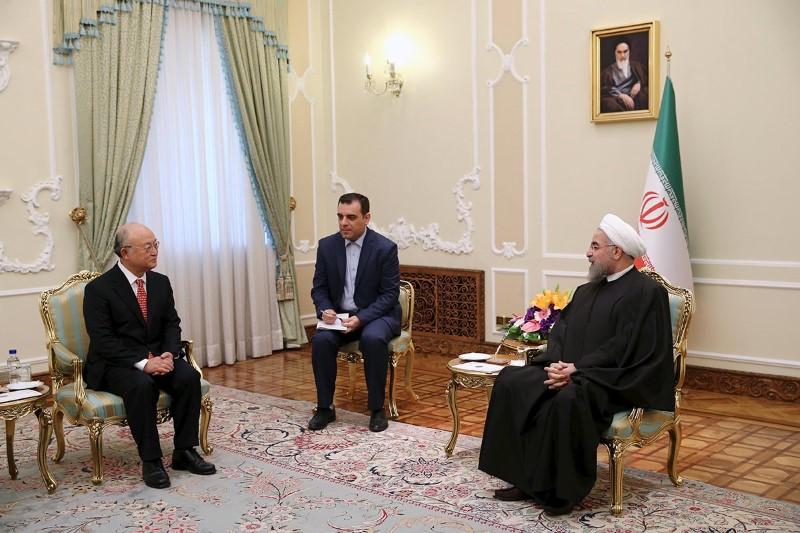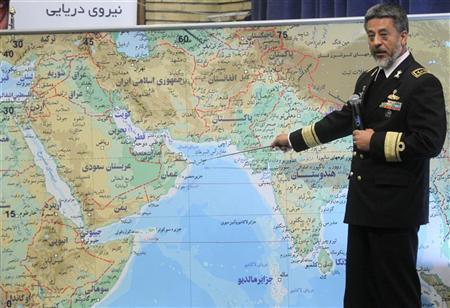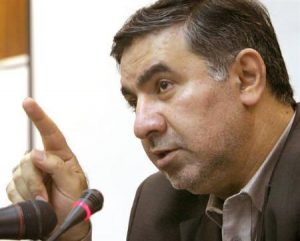By Bozorgmehr Sharafedin
LONDON, July 4 (Reuters) – Iran could reduce its co-operation with the U.N. nuclear watchdog, President Hassan Rouhani told the body’s head on Wednesday, after he warned U.S. President Donald Trump of “consequences” of fresh sanctions against Iranian oil sales.
In May, Trump pulled out of a multinational deal under which sanctions on Iran were lifted in return for curbs to its nuclear programme, verified by the International Atomic Energy Agency (IAEA). Washington has since told countries they must stop buying Iranian oil from Nov. 4 or face financial measures.
“Iran’s nuclear activities have always been for peaceful purposes, but it is Iran that would decide on its level of cooperation with the IAEA,” Iranian state news agency IRNA quoted Rouhani as saying after meeting IAEA head Yukiya Amano in Vienna.
“The responsibility for the change of Iran’s cooperation level with the IAEA falls on those who have created this new situation,” he added.

Rouhani said earlier in the day Tehran would stand firm against U.S. threats to cut Iranian oil sales.
“The Americans say they want to reduce Iranian oil exports to zero … It shows they have not thought about its consequences,” Rouhani was quoted as saying by IRNA.
On Tuesday, Rouhani hinted at a threat to disrupt oil shipments from neighbouring countries if Washington tries to cut its exports.
He did not elaborate, but an Iranian Revolutionary Guards commander explicitly said on Wednesday Iran would block any exports of crude for the Gulf in retaliation for hostile U.S. action.
“If they want to stop Iranian oil exports, we will not allow any oil shipment to pass through the Strait of Hormuz,” Ismail Kowsari was quoted as saying by the Young Journalists Club (YJC) website.
Major-General Qassem Soleimani, commander of the Quds force, in charge of foreign operations for the Revolutionary Guards, said in a letter published on IRNA: “I kiss your (Rouhani’s) hand for expressing such wise and timely comments, and I am at your service to implement any policy that serves the Islamic Republic.”

“SELF HARM”
Rouhani, in Vienna trying to salvage the nuclear deal, said U.S. sanctions were a “crime and aggression”, and called on European and other governments to stand up to Trump.
“Iran will survive this round of U.S. sanctions as it has survived them before. This U.S. government will not stay in office forever … But history will judge other nations based on what they do today,” he said.
Rouhani told reporters that if the remaining signatories – the Europeans Britain, France and Germany as well as China and Russia – can guarantee Iran’s benefits: “Iran will remain in the nuclear deal without the United States.”
Iran’s OPEC governor, Hossein Kazempour Ardebili, said on the Iranian oil ministry news agency SHANA:
“Trump’s demand that Iranian oil should not be bought, and (his) pressures on European firms at a time when Nigeria and Libya are in crisis, when Venezuela’s oil exports have fallen due to U.S. sanctions, when Saudi’s domestic consumption has increased in summer, is nothing but self harm.

“It will increase the prices of oil in the global markets,” he said. “At the end it is the American consumer who will pay the price for Mr. Trump’s policy.”
The European Union, once Iran’s biggest oil importer, has vowed to keep the 2015 deal alive without the United States by trying to keep Iran’s oil and investment flowing. But European officials acknowledge that U.S. sanctions make it difficult to give Tehran guarantees.
Foreign ministers from the five remaining signatories will meet Iranian officials in Vienna on Friday to discuss how to keep the accord alive.
(Reporting by Bozorgmehr Sharafedin; additional reporting Francois Murphy and Kirsti Knolle in Vienna Editing by Toby Chopra and Robin Pomeroy)

